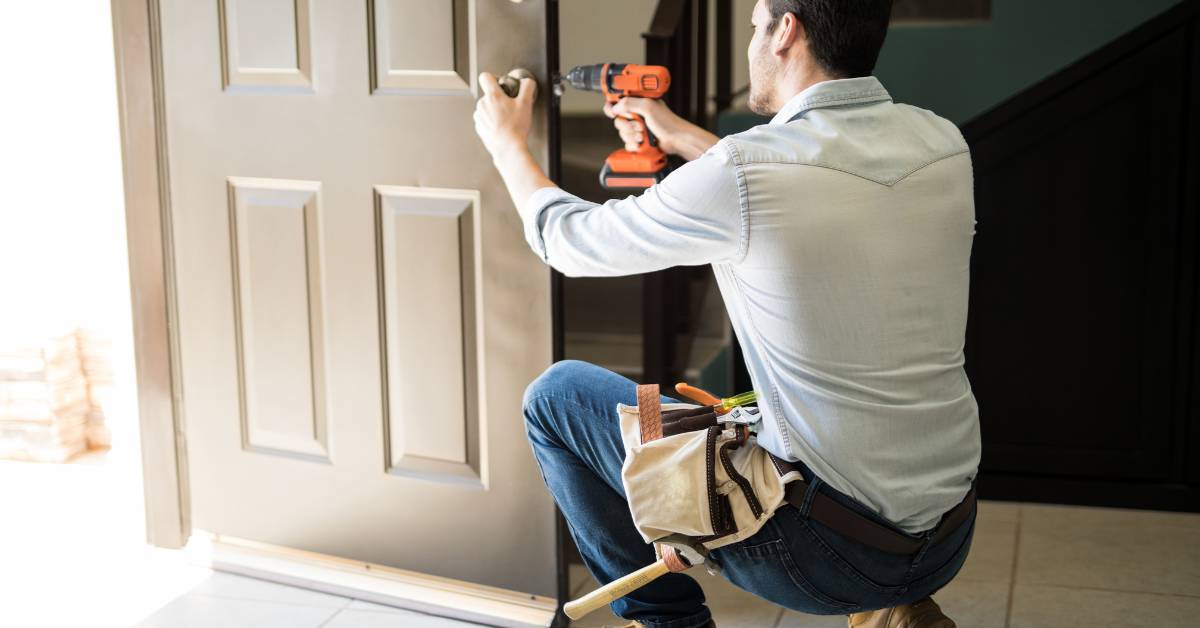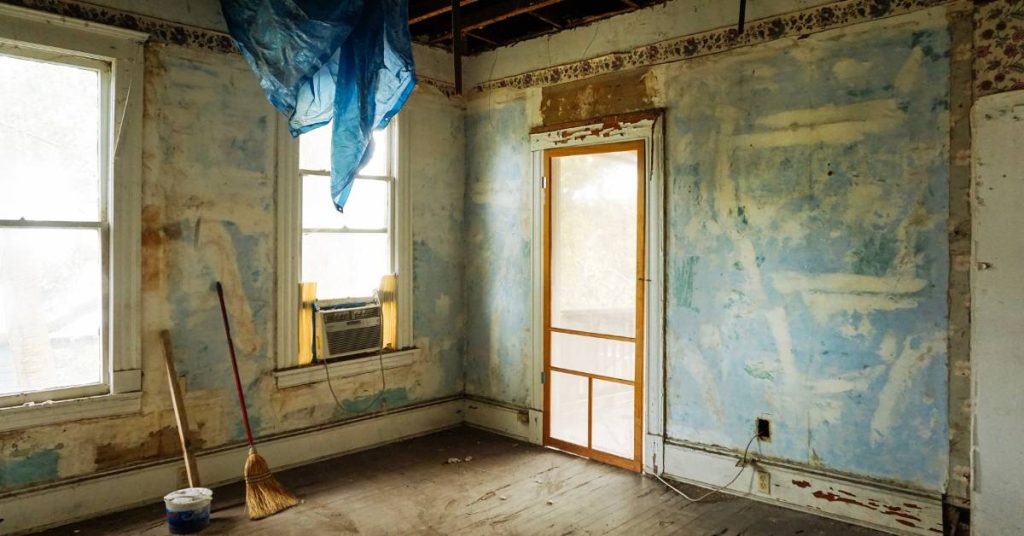So, you’re thinking about flipping a house? That’s awesome!
However, it appears that you may have some concerns and inquiries regarding financing your house flip with an FHA loan. Don’t worry; we’ve got you covered!
This article will provide you with a comprehensive guide to flipping a house with an FHA loan.
You’ll gain a better understanding of the advantages and disadvantages of this approach, as well as the best strategies for success.
By the end of the article, you’ll have all the knowledge you need to decide whether an FHA loan is the right choice for your upcoming house-flipping project.
What is House Flipping?
First things first, let’s define what house flipping means.
House flipping is a popular investment strategy in the real estate market. It involves buying a property at a lower price, renovating it to add value, and then selling it for a profit at a higher price.
The aim is to make a profit by selling the property after adding value through renovation. Flippers typically aim to complete the renovation quickly to minimize holding costs and maximize profits.
How Does an FHA Loan Work?

Let’s discuss how an FHA loan works for house flipping.
An FHA loan is a mortgage that is insured by the Federal Housing Administration and is designed to help borrowers who have a lower credit score and may not have a lot of money for a down payment.
This type of loan is backed by the government, which makes lenders more willing to lend money to those who might not qualify for a conventional loan.
One of the advantages of an FHA loan is that it has lower down payment requirements, more flexible credit score requirements, and lower interest rates than conventional loans.
However, borrowers are required to pay mortgage insurance premiums (MIPs), which can increase the overall cost of the loan, with eligibility playing a crucial role in how much you can qualify for.
What Are the FHA House Flipping Rules?
The FHA has certain guidelines to follow when flipping a house with an FHA loan. These guidelines are meant to safeguard borrowers from unscrupulous lenders and guarantee that the flipped properties are livable and secure.
To prevent lenders from artificially increasing the property’s value, the FHA has a 90-day flipping rule that mandates the borrower to hold ownership of the property for at least 91 days before reselling it. Plus, the resale price cannot exceed 100% of the initial purchase price.
Can You Use an FHA Loan to Flip a House?
The short answer is yes, you can.
As mentioned earlier, certain guidelines and restrictions must be followed when flipping a house with an FHA loan.
The FHA’s 90-day flipping rule mandates that the borrower should possess the property for a minimum of 91 days before selling it. Additionally, you cannot sell the property for more than 100% of the purchase price.
What Are the Benefits of Flipping a House With an FHA Loan?

Flipping a house with an FHA loan comes with its own benefits. So, if you’re considering it, here’s how it might work for you:
- Easier to qualify for than a conventional loan.
- Lower credit score requirements.
- Lower down payment requirements.
- More flexible debt-to-income ratios.
- Potential to get financing for a house flip with limited cash or imperfect credit.
- Lower interest rates compared to conventional loans.
- Potential to save thousands of dollars over the life of the loan.
- Increased potential profit margins.
What Are the Potential Downsides of Flipping a House With an FHA Loan?
Using an FHA loan to flip a house also has some potential drawbacks that should be considered before deciding.
- One major limitation is the loan amount, making it challenging to flip higher-priced properties.
- Strict rules on the property’s condition and repairs can limit your options for the types of houses you can flip.
- The requirement for both an upfront and annual mortgage insurance premium can increase your overall costs and affect your bottom line.
- Insurance premiums can’t be canceled unless you refinance into a conventional loan or pay off the mortgage in full, even if you’ve already built up significant equity in the property.
Despite these potential downsides, many investors still find that an FHA loan is a viable option for flipping houses. If you’re one of them and are looking to flip a house in any of our service locations, give us a call, and we’ll give you a hand.
With careful planning and a solid strategy, you can minimize the risks and reap the rewards of using an FHA loan to flip a house.
The table below summarises both sides of the coin to help you quickly decide.
| Pros | Cons |
|---|---|
| Low down payment requirement (as low as 3.5%) | Limited to one property at a time |
| Relaxed credit score requirements | Property must meet minimum property standards |
| Flexible debt-to-income ratio requirements | Mortgage insurance premiums can be expensive |
| Possibility of a 203(k) loan for home renovations | Strict rules on the condition of the property |
| Potential for a higher return on investment (ROI) | A time-consuming process with multiple inspections |
| Availability of fixed and adjustable-rate options | Limitations on the amount of money that can be lent |
Tips for Successfully Flipping a House With an FHA Loan

Supposing you meet the FHA eligibility requirements and are considering leveraging the loan program to flip a house, here are some tips to help you succeed:
- Choose the right property: Make sure you choose a property that is in good condition and meets the FHA’s minimum property standards. Look for a property that needs only minor repairs or upgrades, as major renovations may not be eligible for an FHA loan.
- Create a solid business plan: Develop a detailed business plan that outlines your strategy for flipping the property and includes projected costs, timelines, and expected returns.
- Work with a knowledgeable lender: Choose a lender with experience in working with FHA loans and flipping properties. They can help you navigate the process and provide valuable insights and advice.
- Keep renovation costs low: Stick to a budget and look for cost-effective ways to make repairs and upgrades. Consider doing some of the work yourself or working with a contractor who offers competitive rates.
- Price the property appropriately: Work with a real estate agent or appraiser to determine the optimal price for the property based on comparable sales in the area. Be mindful of the FHA’s house flipping rules, and make sure the price is not inflated beyond what is reasonable.
Frequently Asked Questions
Are there any restrictions on house flipping with an FHA loan?
Yes, there are some limitations when it comes to flipping a house with an FHA loan.
The FHA sets regulations on how long you must hold onto the property before selling it and the maximum profit you can make from the sale.
Furthermore, the property must meet certain requirements and be in good condition, with any necessary repairs completed before the loan is approved. These rules are put in place to safeguard the borrower and ensure that the property being flipped meets specific standards.
How long do you have to own a house before flipping it with an FHA loan?
To clarify, the FHA has a 90-day flipping rule that requires you to own the property for at least 91 days before reselling it.
This is designed to prevent fraudulent property flipping practices. Additionally, if you want to sell the property before 91 days have passed, you will need to meet certain criteria and obtain approval from the FHA.
What is the FHA anti-flipping rule?
The FHA has an anti-flipping rule that mandates a seller to own a property for at least 90 days before selling it to an FHA loan buyer.
The purpose of this rule is to curb fraudulent practices and ensure that the properties sold are in good condition. The rule was implemented in 2003 due to concerns that some investors were buying and reselling properties without necessary repairs, putting innocent homebuyers at risk.
In a Nutshell …
Flipping a house with an FHA loan can be a fantastic way to dive into the world of real estate investment.
Sure, there are a few hurdles to jump over, but with some savvy planning and a winning game plan, you can turn a profit in no time.
Keep these pointers in mind as you weigh up whether an FHA loan is the perfect fit for your house-flipping goals.






